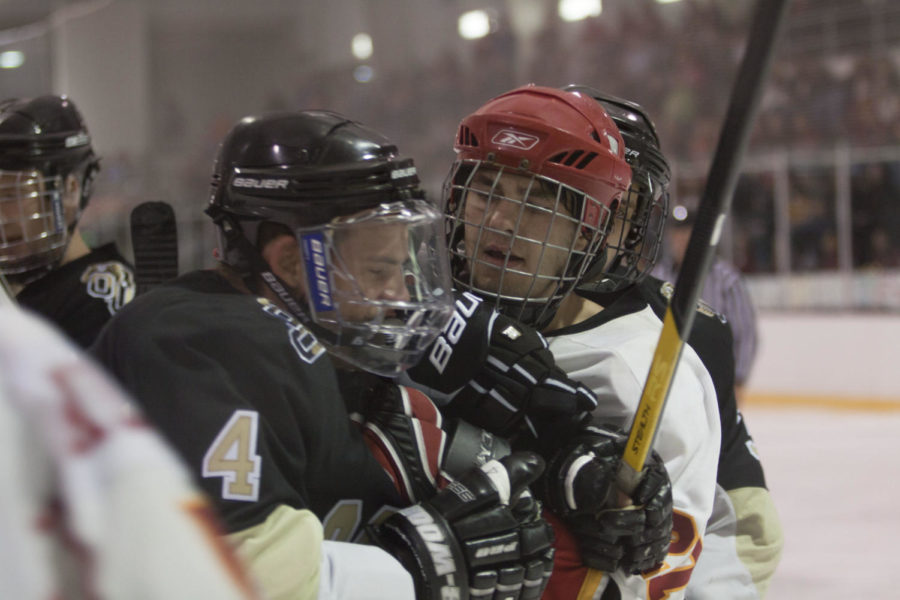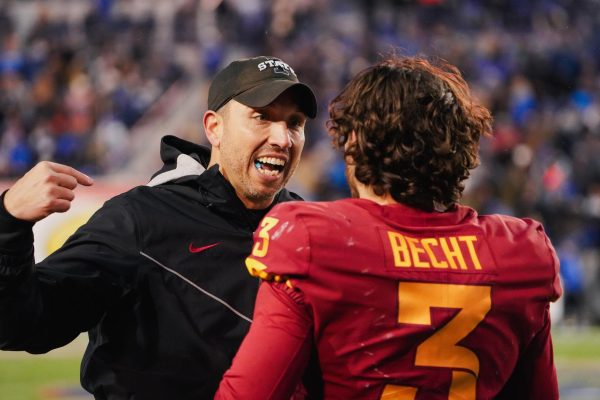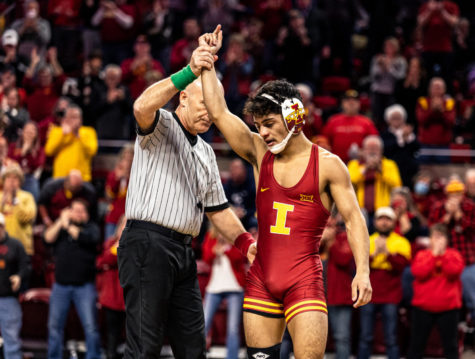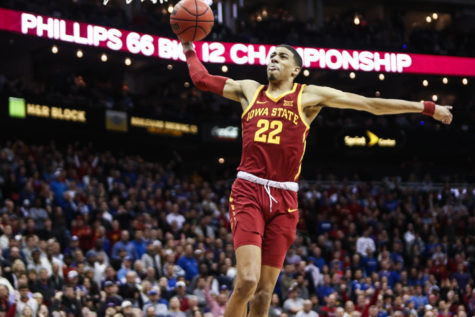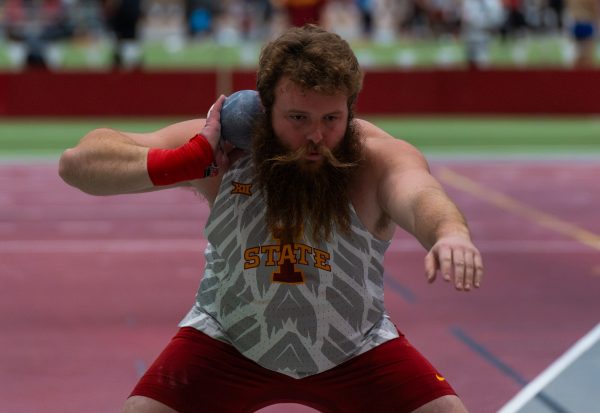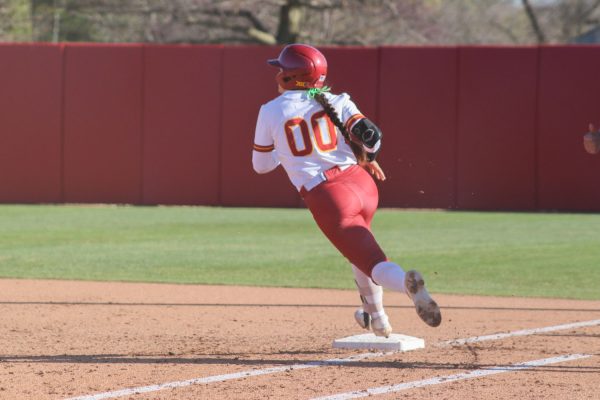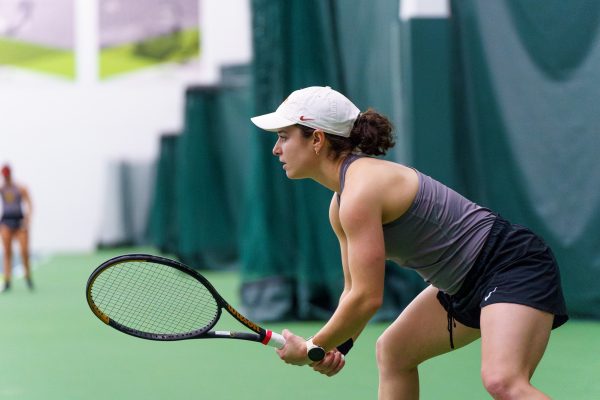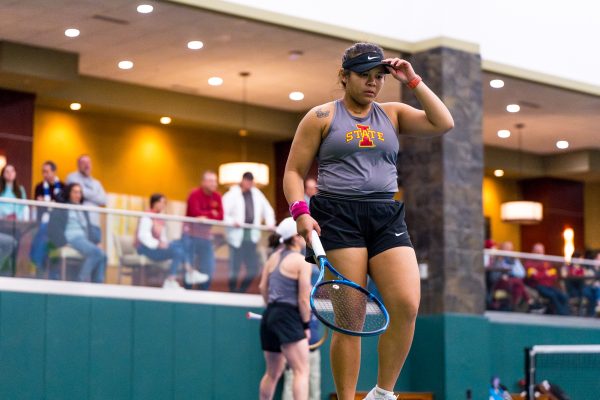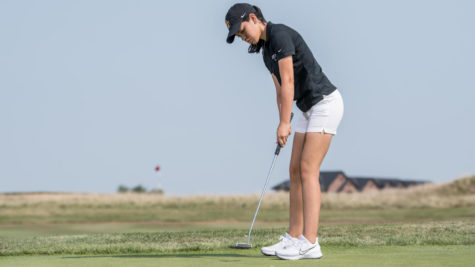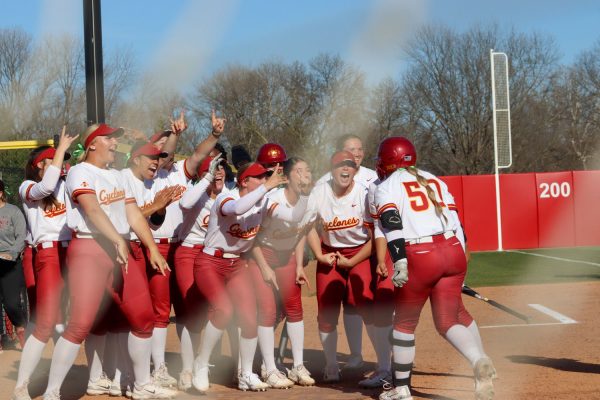Fighting restrictions persist in college hockey
Photo: David Merrill/Iowa State Daily
Joe Bueltel gets into a skirmish up against the glass during the game against Oakland on Friday, Oct. 14. Iowa State beat Oakland 5-3 in game one of a two-game series. Bueltel had one assist but was penalized six times during the game.
May 6, 2013
After a hockey player moves from high school hockey into a junior league (ages 16 to 20), players are treated more like professionals in that they are able to fight during a game.
Whether it be the NCAA or the American Collegiate Hockey Association, or ACHA, — where Iowa State plays — college hockey becomes this magical middle level between junior and professional hockey where players are not allowed to fight and sportsmanship is encouraged.
“It’s unique in that at the college level we encourage good sportsmanship and at the junior level they like to think that they’re developing them for a professional career,” said ISU coach Al Murdoch.
The rule on fighting in junior hockey’s United States Hockey League, or USHL, looks similar to the rule on fighting in the NHL: A fighting penalty in both is a five-minute major penalty.
One difference between them is that on the second fighting penalty in the USHL, the player is ejected from the game. In the NHL, the player does not get ejected simply for fighting more than once in a game.
In NCAA or ACHA hockey, players are required to wear a full mask on their helmets, and the penalty for fighting is an automatic disqualification. It may also result in a suspension from the next game.
ISU forward Joe Bueltel has had to change his game up since coming to Iowa State after fighting was a big part of his game when he helped the Dubuque Fighting Saints win a national championship in the USHL.
During the 2010-11 regular season, Bueltel had 119 penalty minutes despite only playing in 27 games. That’s an average of 4.41 penalty minutes per game.
This past season with the Cyclones, Bueltel had just 53 penalty minutes in 21 games played — a lesser average of 2.52 penalty minutes per game.
“I’ve gotten to work on the finesse part of the game, moving the puck and trying to get some more points and help my team out,” Bueltel said.
“It’s been a positive change but I do still miss that aspect of it.”

